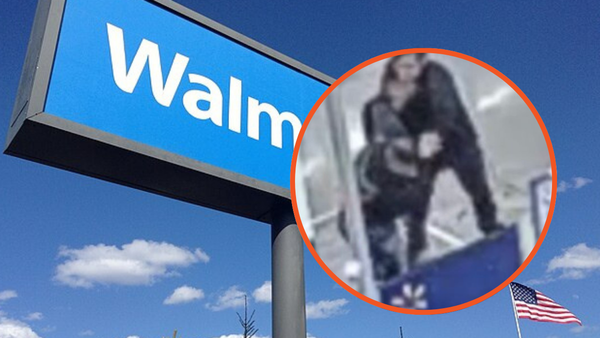BALTIMORE — The inauguration day of Westley Watende Omari Moore as Maryland’s first Black governor is shaping up to look like a walk through history.
An early morning visit to the Annapolis docks where enslaved Africans once arrived on Maryland’s shores.
An oath of office using a Bible owned by Frederick Douglass.
An inaugural speech just steps from a statue of Thurgood Marshall that marks the spot where he argued as a young lawyer before becoming the first Black justice of the U.S. Supreme Court.
After a campaign in which Moore sometimes downplayed his race, saying repeatedly that his “assignment was not to make history,” the first-time elected official is putting the imagery of Maryland’s past at the forefront of his swearing-in Wednesday.
“It’s something that’s very personal and emotional to me, but also I want the state to embrace it,” Moore told The Baltimore Sun in an interview Monday. “I want the state to remember not just to celebrate this moment, but to understand the path and the progress that people had to push for, and people of all backgrounds, of all races, of all religions, that pushed for the state and fought for the state to be better.”
Wednesday is not just the first day in office of what will then be the country’s only current Black governor — and only the third elected in U.S. history — but the beginning of a historic leadership slate in Maryland government.
Aruna Miller will be the state’s first Asian American lieutenant governor. Earlier this month, Anthony Brown became its first Black attorney general. On Monday, Brooke Lierman became the first woman to serve as comptroller and the first woman directly elected to a state-level position.
House Speaker Adrienne A. Jones, meanwhile, became the first Black lawmaker to lead a chamber of the General Assembly in 2019, and was just reelected to that office. Treasurer Dereck Davis, in a position selected by legislators, is only the second Black person to serve in his role.
U.S. Rep. Kweisi Mfume said the list of leaders is the culmination of a long history and an “idea whose time has come.”
“It’s the lesson that Dr. [Martin Luther] King taught all of us many, many years ago,” Mfume said. “This was sort of preordained. It was not going to continue the way it was forever.”
Mfume, a Baltimore Democrat who first left his congressional seat in 1996 to lead the National Association for the Advancement of Colored People, has been on the cusp of making history in the state himself. In 2006, he narrowly lost to then-U.S. Rep. Ben Cardin in an open Democratic primary for U.S. Senate. Cardin won the general election that year against Republican Lt. Gov. Michael Steele, the first Black candidate elected to statewide office in Maryland, in 2002.
“This idea of diversity with women and with racial minorities, you just couldn’t hold it back any longer,” Mfume said. “I’m just glad that it’s happened here in Maryland so that Maryland shows the way for other states and other communities, not to just throw people out there because of their sex or because of their racial background or their ethnicity, but to put people together ... and to make sure you have a core of an operation that reflects everybody, but also a core of what the future should look like.”
That future, he and others say, is increasingly one where minority groups represent larger slices of the population and then see themselves reflected in political leadership.
“It’s a microcosm, as we become particularly a majority-minority country, of the type of representation that we will see,” said Chryl Laird, an associate professor of government and politics at the University of Maryland, College Park. Laird referred to the point — possibly before 2050 — when experts believe nonwhite populations will make up more than half the national population.
Maryland already has a majority nonwhite population. The 2020 census showed non-Hispanic white residents made up 47% of the population that year, down from 55% in 2010.
Other than Hawaii, California and Nevada, it’s the most diverse population in the country, according to the U.S. Census Bureau’s Diversity Index, which measures the probability that two people chosen at random will be from different race and ethnicity groups. Using 2020 data, Maryland’s probability was 67.3% — just a hair above the District of Columbia and Texas.
State Sen. Will Smith of Montgomery County, the first Black chair of the Senate’s Judicial Proceedings Committee, mentioned the demographic comparisons to other states when reflecting on the new elected leadership.
“When you bring new, diverse voices to the policymaking process, you just get better policy,” Smith said. “It’s more reflective of all of us. And that’s a great thing.”
On those policy priorities, Moore has yet to announce exactly what his plan is to combat a range of societal challenges he discussed on the campaign trail — including issues around criminal justice and poverty that have disproportionately affected minority communities.
Laird said it will be important for Moore not to be “put up too far on a pedestal” that unfairly elevates the expectations of what he can accomplish.
There’s also a lesson to learn from former Democratic President Barack Obama, she said, in that just the optic of a Black president led some to believe the country had reached a “post-racial society.”
Working in Moore’s favor, in part, are outgoing Republican Gov. Larry Hogan’s dedication to a peaceful transition and the sunny revenue picture Moore is walking into, Laird said. That could prevent Moore from inheriting what is sometimes referred to as “the hollow prize” — a situation where a Black leader who is a “first” enters amid limited resources and considerable challenges, Laird said.
“Those ‘Black firsts’ often then struggle with gaining a footing in their leadership because they are coming up against so many challenges that they’re not able to be effective,” Laird said. “Wes Moore is not going to have to deal with that.”
Laird said Moore’s focus on tackling child poverty could serve as an important issue that “bridges constituencies,” appealing to a broad scope of the population.
Moore interned in college with Kurt Schmoke, the first elected Black mayor of Baltimore, and Schmoke encouraged him to apply for the Rhodes scholarship (Schmoke studied at Oxford University as a Rhodes scholar in 1971, Moore in 2001). He said he doesn’t think Moore will “feel any kind of unique pressure because of race.” He noted Moore’s previous leadership positions in the Army and at the poverty-fighting nonprofit Robin Hood, where he managed diverse groups.
“Those experiences will help him a great deal and I just don’t think he’s going to feel that extra pressure for being the first African American governor,” Schmoke said, emphasizing that he hasn’t spoken to Moore about the idea.
If anything, Moore might feel the same sort of pressure to succeed as Hogan did when he first entered office, since neither he nor Moore had previous experience in elected office, Schmoke said.
Moore has talked in recent weeks about having both a “bold” agenda and a cautious approach to the state’s roughly $5 billion in surplus and rainy day funds.
Maryland Democratic Party Chair Yvette Lewis, after listening to Moore talk about his ambitious plans during a speech last week, said she was thrilled with “what possibilities await us” under the new leadership in Annapolis.
“We have lifted up our diversity. It’s OK to embrace it. That’s exactly what we said here in Maryland: ‘It’s OK to embrace who America is and what America looks like,’” Lewis said.
Laird said Moore’s embrace of that diversity during his inauguration is reminiscent in some ways of Obama announcing his presidential campaign in a spot outside the Illinois capitol where Abraham Lincoln once spoke out against slavery.
In Maryland — a former slaveholding state that went on to play critical roles in integration, in establishing historically Black colleges and universities, and in the lives of figures like Marshall, Douglass and Harriet Tubman — it’s a sign of both progress and “still some things that need to be done,” Laird said.
Moore said his plans for Wednesday have been designed specifically to “acknowledge the journey” that led to his candidacy. That will start with a small event at City Dock in Annapolis, where enslaved Africans landed after the Middle Passage across the Atlantic Ocean. Gathered with him will be prominent Black leaders, who Moore described as “giants” whose shoulders he stands on.
“The history of Black life here has been one that has ebbed and flowed, but one that has been grounded in a history that’s quite tumultuous,” Laird said. “To be a state that comes from that history to now be at this point is a very positive signal and it speaks volumes to where we’ve been.”
____
(Baltimore Sun reporter Hannah Gaskill contributed to this article.)
____







